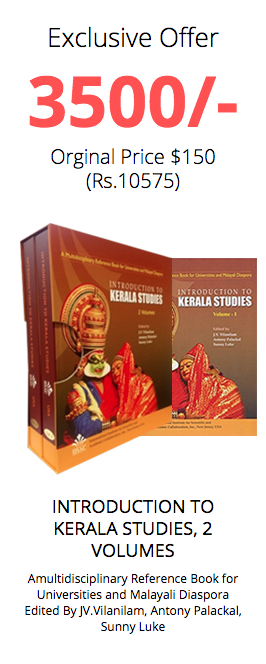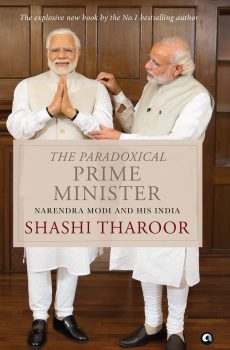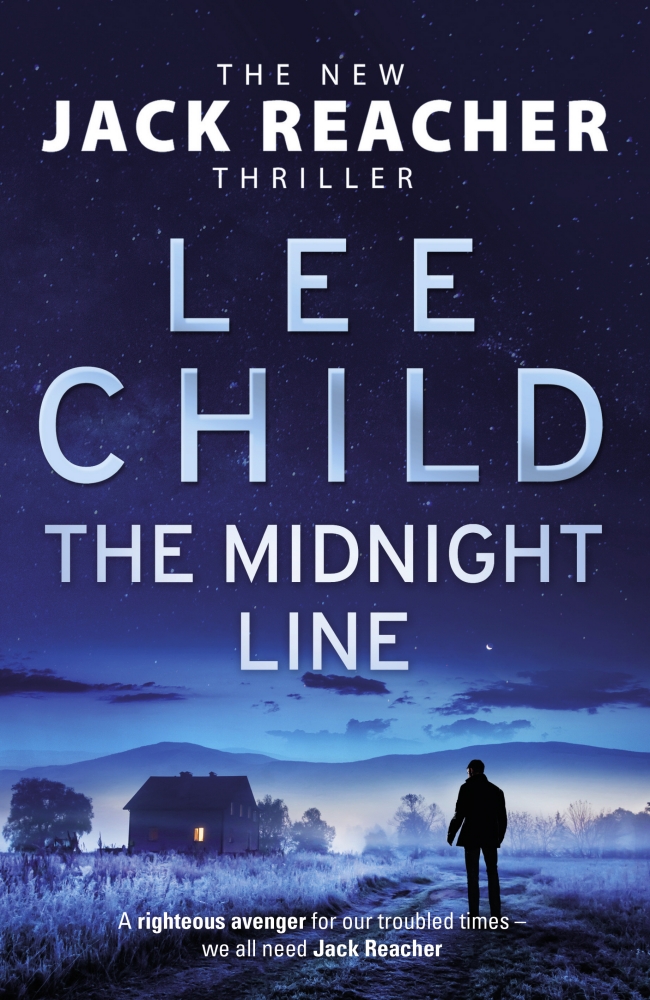
THE MIDNIGHT LINE – JACK REACHER
599.00₹ 399.00₹
Jack Reacher takes an aimless stroll past a pawn shop in a small Midwestern town. In the window, he sees a West Point class ring from 2005. It’s tiny. It’s a woman cadet’s graduation present to herself. Why would she give it up? Reacher’s a West Pointer too, and he knows what she went through to get it.
Reacher tracks the ring back to its owner, step by step, down a criminal trail leading west. Like Big Foot come out of the forest, he arrives in the deserted wilds of Wyoming. All he wants is to find the woman. If she’s OK, he’ll walk away. If she’s not … he’ll stop at nothing.
He’s still shaken by the recent horrors of Make Me, and now The Midnight Line sees him set on a raw and elemental quest for simple justice. Best advice: don’t get in his way.
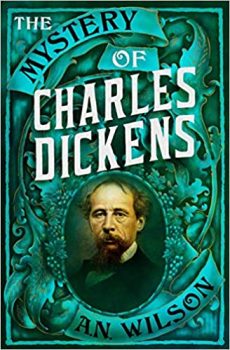
THE MYSTERY OF CHARLES DICKENS.
699.00₹ 669.00₹
Superb’ Daily Mail, ‘book of the week’ ‘Brilliant’ The times, ‘book of the week’ ‘[A] vivid, detailed account’ Guardian, ‘book of the week’ ‘Hugely enjoyable’ Daily Telegraph ‘fascinating’ Spectator Charles Dickens was a superb public performer, a great orator and one of the most famous of the eminent Victorian. Slight of build, with a frenzied, hyper-energetic personality, Dickens looked much older than his fifty-eight years when he died. Although he specified an unpretentious funeral, it was inevitable that crowds flocked to his open grave in Westminster Abbey. Experiencing the worst and best of life during the Victorian age, Dickens was not merely the conduit through whom some of the most beloved characters in literature came into the world. He was one of them.
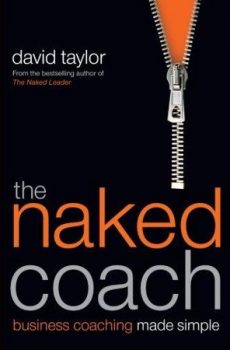
The Naked Coach: Business Coaching Made Simple
1,170.00₹ 590.00₹
Bestselling author David Taylor returns with his take on businesscoaching. No fuss. No jargon. Just great ideas.
The Naked Coach is the back-to-basics book on coaching that willmake sense of coaching and place it back at the very heart of thebusiness agenda. It will make understanding, learning and teachingcoaching simple. The Naked Coach tells real, practical, fun,exciting and above all else relevant stories that you can applystraightaway. David Taylor strips away the hype, jargon and mysteryto give coaching a clear definition in all its forms, includingmentoring, training, facilitation and interventions of every kind.The Naked Coach explains coaching without being patronising,defines without being arrogant, and does it in a fun, accessibleway. It is coaching from a different perspective – yours.
The fundamental principle of The Naked Coach is to be yourself– always. Find what works for you, and do it, again and againand again. Remember. No fuss. No Jargon. Just great ideas.

The Neurobiology of Criminal Behavior
12,900.00₹ 5,999.00₹
Criminological theory dating back one hundred years has been aware of the need to develop a neurobiology of extroversion, impulsivity, frontal-lobe dysfunction, and aggressive behavior, yet in the twentieth century criminologists have largely forsaken this psychobiological legacy. The Neurobiology of Criminal Behavior looks at this legacy with reference to a variety of neurobiological methodologies currently in vogue. The authors are all distinguished researchers who have contributed considerably to their respective fields of psychiatry, psychology, psychobiology, and neuroscience.
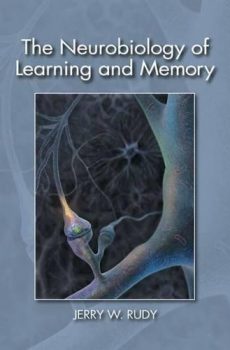
The Neurobiology of Learning and Memory
6,090.00₹ 4,900.00₹
To understand how the brain learns and remembers requires an integration of psychological concepts and behavioral methods with mechanisms of synaptic plasticity systems and systems neuroscience. The Neurobiology of Learning and Memory is a new undergraduate textbook that provides a synthesis of this interdisciplinary field. Each chapter makes the key concepts transparent and accessible to a reader with a minimal background in either neurobiology or psychology and is extensively illustrated with full-color photographs and line art depicting important concepts and experimental data. The first section of the book is organized around the central ideas that synapses are plastic and can be modified by experience and that the synapse is the basic unit of information storage. It introduces students to the long-term potentiation methodology used to study how synapses are modified, the concepts of post-translation processes, genomic signaling processes, local protein synthesis and synaptic tagging, and how they contribute to strengthening synapses. It emphasizes the various ways calcium regulates processes that strengthen synapses and ends with a discussion on the structure of dendritic spines and how changes in the spine s structure contribute to its function and stability. The second section builds on this foundation to show how molecules and cellular processes that have been identified from studies of synaptic plasticity also participate in the making of memories. It features a discussion of the basic conceptual issues researchers face in trying to relate memory to molecules and describes some of the behavioral and neurobiological methods that are used. This section also introduces the concept of memory modulation and discusses the fate of retrieved memories and how they can be modified. The final section of the book is organized around the multiple memory systems view that different neural systems have evolved to store the content contained in our experience. It features discussion of the medial-temporal hippocampal system that supports episodic memory, the concept of systems consolidation, and its relationship to Ribot s law that memories become resistant to disruption as they age. The cortico-striatal system and its relationship to what are called behavioral actions and habits is described, and this section ends with a discussion of neural systems involved in the acquisition and removal of emotional memories.

The Nomads of Mykonos
8,400.00₹ 3,690.00₹
This is the ethnography of the Mykoniots d élection, a gang of romantic adventurers who have been visiting the island of Mykonos for the last thirty-five years and have formed a community of dispersed friends. Their constant return to and insistence on working, acting and creating in a tourist space, offers them an extreme identity, which in turn is aesthetically marked by the transient cultural properties of Mykonos. Drawing semiotically from its ancient counterpart Delos, whose myth of emergence entails a spatial restlessness, contemporary Mykonos also acquires an idiosyncratic fluidity. In mythology Delos, the island of Apollo, was condemned by the gods to be an island in constant movement. Mykonos, as a signifier of a new form of ontological nomadism, semiotically shares such assumptions. The Nomads of Mykonos keep returning to a series of alternative affective groups largely in order to heal a split: between their desire for autonomy, rebellion and aloneness and their need to affectively belong to a collectivity. Mykonos for the Mykoniots d élection is their permanent stopover ; their regular comings and goings discursively project onto Mykonos space an allegorical (discordant) notion of home .
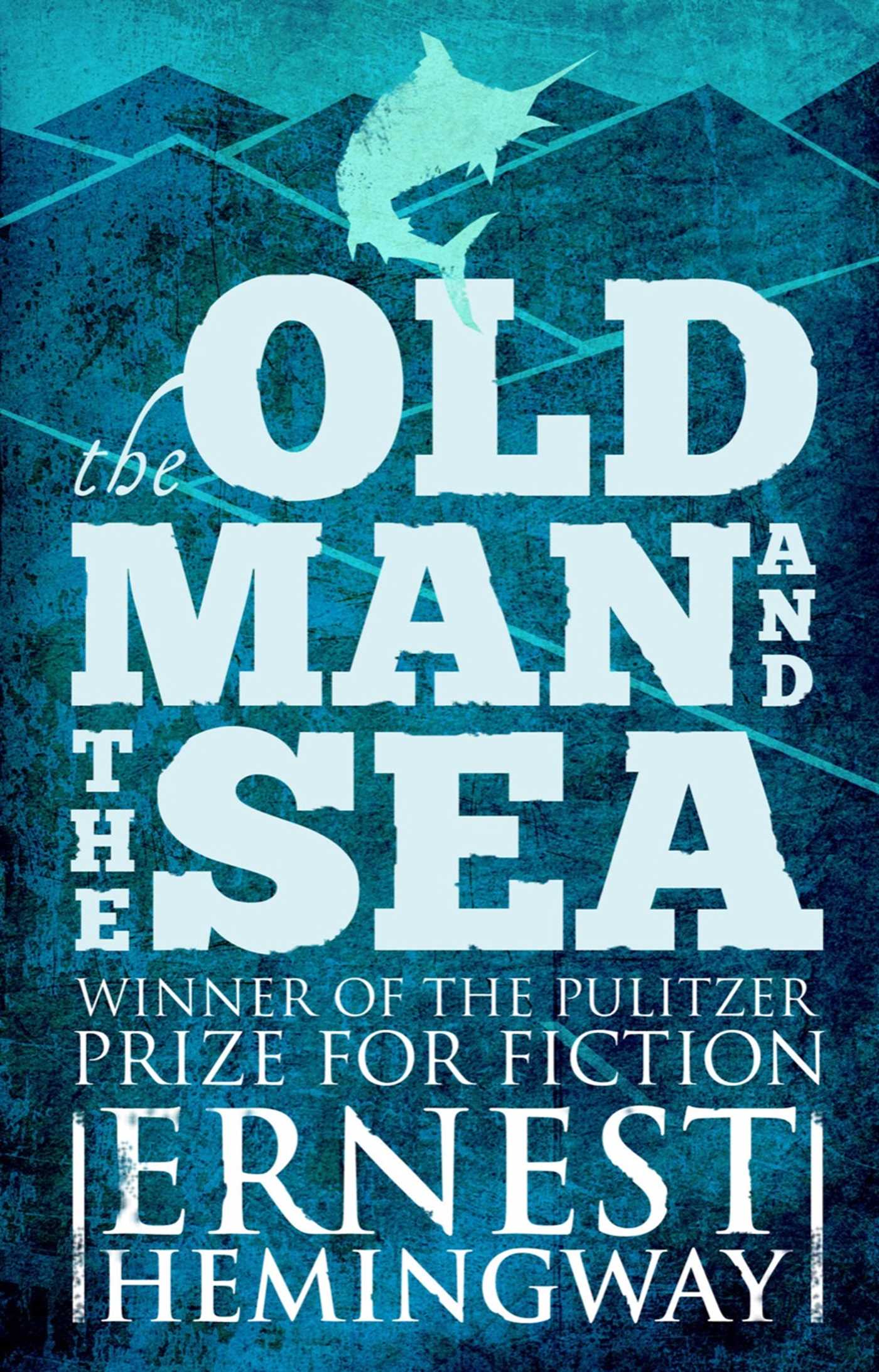
The Old Man and the Sea
150.00₹ 140.00₹
It is the story of an old Cuban fisherman and his supreme ordeal: a relentless, agonizing battle with a giant marlin far out in the Gulf Stream. Using the simple, powerful language of a fable, Hemingway takes the timeless themes of courage in the face of defeat and personal triumph won from loss and transforms them into a magnificent twentieth-century classic.
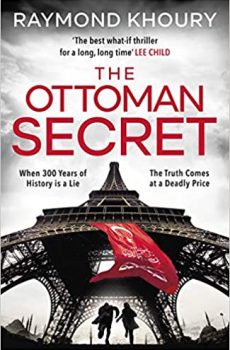
THE OTTOMAN SECRET
399.00₹ 370.00₹
Kamal arslan Agha is a patriot, loyal to the Sultan and his dominion over Europe. As a special investigator for the tashkeelat-i hafiye – The secret police – Kamal is on the front lines of the empire’s harsh response to the increasing political and economic turmoil throughout the continent. But the caliphate’s efforts to impose law and order spare no one, and soon, kamal’s own family draws the attention of the hafiye’s ever-watchful eye. His brother and sister-in-law have stumbled onto a secret, a piece of knowledge so profoundly dangerous that the caliphate will do anything to suppress it. With the very foundations of the empire under threat, kamal’s family has only one choice: they must run. And whether or not they escape the long-arm of the hafiye will determine not only their own fate, but the existence of the caliphate itself – its past, its present, and its future.

The Overseer’s Cabin
1,390.00₹ 990.00₹
With Édouard Glissant’s The Fourth Century, the Village Voice observed, “we get the full effect of his overarching project: a literary exorcism of Martinique’s scarred psyche and past, a lingering cry against the ‘black hole of time and forgetting.’” Glissant, “one of the most significant figures in Caribbean literature” (Washington Post), continues that project in The Overseer’s Cabin, conjuring in one woman’s story centuries knotted together by unknown blood, voiceless suffering, and death without echo.
Beginning with the birth in 1928 of Mycea, the last of the intertwining ancestral families introduced in The Fourth Century, and ending with her release from an asylum in 1978, the novel moves back and forth across a framework that weaves the story of Mycea’s family against the legacy of Martinique as an island whose history and indigenous people have all but been erased. From the beginnings of Mycea’s family in the tale of two blood brothers, both named Odono, to its ending with the fate of her two sons, the novel encapsulates the island’s destiny in one Martinican woman’s plight. With the past irretrievable and the future in doubt, Mycea journeys inward, finding in her connection to the land of Martinique, and to the seafloor littered with drowned slaves, a reality, and a possibility, uncolonized by others’ history.
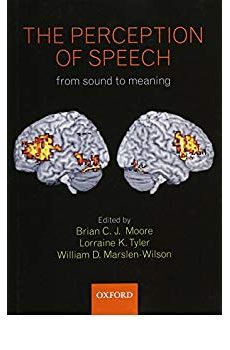
The Perception of Speech
7,090.00₹ 3,550.00₹
Brings together two often isolated lines of research to present a wide ranging exploration of speech and language processing – from phonetics and psycholinguistics to neuroimaging and neuroanatomy. Written and edited by top researchers in the brain sciences, and presenting work from leading research centres throughout the world.Shows how an approach that spans disciplines can help provide answers to the myriad of questions that remain unanswered in the field of speech communication
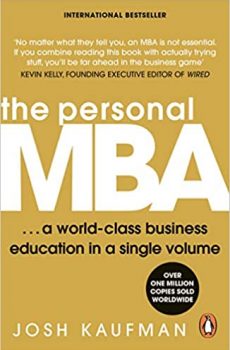
THE PERSONAL MBA A WORLD CLASS BUSINESS EDUCATION IN A SINGLE VOLUME
699.00₹ 665.00₹
True leaders aren’t made by business schools. They make themselves getting a MBA degree has become difficult to justify not just because of the large price tag but also because of the growing impracticality. Even the elites like Harvard and Wharton offer outdated, assembly-line programs that teach you more about power point presentations than about how business really works. For ten years, Josh Kaufman’s the personal MBA has served as an effective alternative introducing hundreds of thousands of readers to the most powerful business concepts of all time. He shares the essentials of entrepreneurship, marketing, sales, negotiation, operations, productivity, systems design, and much more, in one comprehensive volume.

The Physics of Clinical MR Taught Through Images
5,300.00₹ 3,300.00₹
Portions of the book have been presented at both the RSNA (Radiological Society of North America, 2003) meeting and the ARRS (American Roentgen Ray Society, 2004) meeting. Awards were given to one of the two exhibits shown at each meeting, with the award at the ARRS being very prestigious (a ‘silver medal’). At the 2004 ARRS meeting there were 229 exhibits presented. One gold medal, three silver medals, six bronze medals and 30 certificates of merit were awarded. The exhibits were also chosen for submission to Radiographics (which was declined, as there were copyright issues). Other sections of the book have been submitted for presentation at the 2004 RSNA meeting, and if accepted there, will also be submitted to the 2005 ARRS meeting.
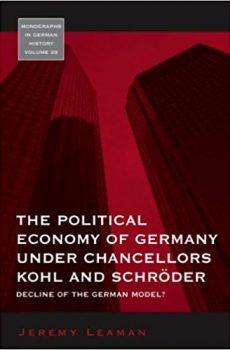
The Political Economy of Germany under Chancellors Kohl and Schröder
8,400.00₹ 3,695.00₹
While unification has undoubtedly had major effects on Germany’s political economy, the pattern of current policy-making preferences was established at an earlier stage, in particular, at the beginning of the ‘Kohl-era’ in 1982. This essentially neo-liberal pattern can be seen to have dominated the modalities chosen to guide Germany through the process of unifi cation and was mirrored in developments in other OECD countries and in particular within the EU. This book demonstrates that the three policy imperatives (neo-liberal structural reform, European monetary integration, and unification) produced a policy-mix which, together with other structural economic and demographic factors, has had disappointing results in all three areas and hampered Germany’s overall economic development.

The Politics of German Defence and Security
8,400.00₹ 1,790.00₹
The post-Cold War era has witnessed a dramatic transformation in the German political consensus about the legitimacy of the use of force. However, in comparison with its EU and NATO partners, Germany has been reticent to transform its military to meet the challenges of the contemporary security environment. Until 2003 territorial defence rather than crisis-management remained the armed forces’ core role and the Bundeswehr continues to retain conscription. The book argues that ‘strategic culture’ provides only a partial explanation of German military reform. It demonstrates how domestic material factors were of crucial importance in shaping the pace and outcome of reform, despite the impact of ‘international structure’ and adaptational pressures from the EU and NATO. The domestic politics of base closures, ramifications for social policy, financial restrictions consequent upon German unification and commitment to EMU’s Stability and Growth Pact were critical in determining the outcome of reform. The study also draws out the important role of policy leaders in the political management of reform as entrepreneurs, brokers or veto players, shifting the focus in German leadership studies away from a preoccupation with the Chancellor to the role of ministerial and administrative leadership within the core executive. Finally, the book contributes to our understanding of the Europeanization of the German political system, arguing that policy leaders played a key role in ‘uploading’ and ‘downloading’ processes to and from the EU and that Defence Ministers used ‘Atlanticization’ and ‘Europeanization’ in the interests of their domestic political agendas.
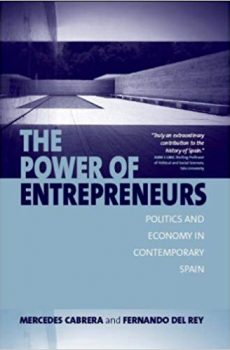
The Power of Entrepreneurs
8,400.00₹ 2,050.00₹
Although Spain is an important member of the EU, relatively little is known about its economy and its interrelationship with political forces. This book, the first of its kind, offers a long-term view and analyzes this ever-changing relationship throughout the 20th century with its various upheavals such as the crisis of the democratic republic and the civil war in the 1930s, the long General Franco dictatorship from the 1940s until the 1970s and the subsequent transition to democracy. From the detailed studies of individual cases, specific companies as well as entrepreneurial organizations, a very diverse picture emerges, contradicting widespread simplistic interpretations of politico-economic linkages, which demonstrates both the pluralism of the economic interests as well as the complexity of their relationship to the political class.

The Psychological Impact of Acute and Chronic Illness:
5,600.00₹ 1,090.00₹
This book helps the primary care physician navigate the normative and non-normative psychological responses to illness, provides advice on coping and offers guidance on mental health referrals. The concise but comprehensive text emphasizes the basics, including responses to serious and potentially life-threatening illness, normal and maladaptive coping responses in medically ill individuals, and specific aspects of the illness process. Case examples illustrate the concepts discussed. Includes a chapter on psychotropic medications, and another on the special circumstances of non-compliant patients. The book concludes with discussion of family situations and offers recommendations on referring patients to a mental health provider who specializes in treating the medically ill.
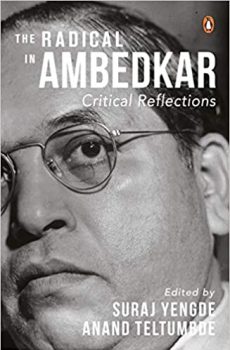
THE RADICAL AMBEDKAR: CRITICAL REFLECTIONS
999.00₹ 899.00₹
This landmark volume, edited and introduced by Anand Teltumbde and Suraj Yengde, establishes B.R. Ambedkar as the most powerful advocate of equality and fraternity in modern India. While the vibrant Dalit movement recognizes Ambedkar as an agent for social change, the intellectual class has celebrated him as the key architect of the Indian Constitution and the political establishment has sought to limit his concerns to the question of reservations. This remarkable volume seeks to unpack the radical in Ambedkar’s legacy by examining his life work from hitherto unexplored perspectives. Although revered by millions today primarily as a Dalit icon, Ambedkar was a serious scholar of India’s history.
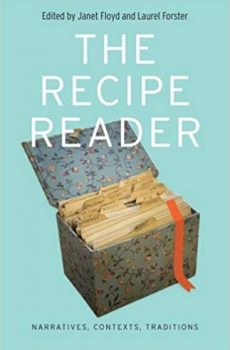
The Recipe Reader
1,690.00₹ 1,290.00₹
Although the last decade has seen an intense and widespread interest in the writing and publishing of cookery books, surprisingly little contextualized analysis of the recipe as a generic form has appeared. This essay collection asserts that the recipe in all its cultural and textual contexts―from the quintessential embodiment of lifestyle choices to the reflection of artistic aspiration―is a complex, distinct, and important form of cultural expression. Contributors address questions raised by the recipe and its context, cultural moment, and mode of expression. Examples are drawn from such diverse areas as nineteenth- and twentieth-century private publications, official government documents, campaign literature, magazines, and fiction, as well as cookery writers themselves, cookbooks, and TV cookery.
The Recipe Reader brings new perspectives, contexts, and arguments into the existing debate about cookery writing and will interest scholars of literature, popular culture, social history, and women’s studies, as well as food historians and professional food writers.

